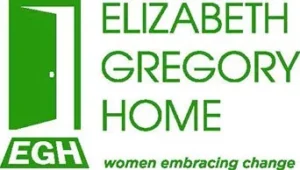Health Navigator to Improve Access to Health Services for Women Experiencing Homelessness

Grantee: Elizabeth Gregory Home
Timeframe: July 2023 – June 2026 | Amount: $323,354.70
- Year 1: July 2023 – June 2024. Amount: $99,870.40
- Year 2: July 2024 – June 2025. Amount: $109,435.50
- Year 3: July 2025 – June 2026. Amount: $114,048.80
Elizabeth Gregory Home (EGH) partners with women experiencing homelessness, economic insecurity, or trauma as they move to stability. The women EGH serves have high rates of health concerns: 41% of their clients report at least one physical disability, 53% manage mental health challenges, and 26% have both. This is likely undercounting, as nationwide, women experiencing homelessness report an average of 3 health problems each and women in unsheltered homelessness have significantly more health concerns than women living in shelters. Health and behavioral health issues can be both a cause of homelessness and a result of a person’s experiences facing homelessness. Managing a mental or physical illness can make it more challenging to hold a job or maintain stable housing and sometimes results in medical debt, which can lead to homelessness.
The Health Navigator supports women by enrolling them in Medicaid, arranging transportation, locating providers, advocating on their behalf, securing housing and shelter, organizing educational workshops, coordinating vaccination and health clinics, and engaging with partner agencies.
This role provides direct assistance to women experiencing chronic homelessness, behavioral health challenges, substance use disorders, trauma, chronic medical conditions, and aging-related concerns. Many guests struggle with trust, communication, time management, follow-through, and maintaining essential documentation. The Health Navigator’s accessibility, familiarity with guests, and flexible scheduling make the service vital for navigating healthcare systems. While often assisting with basic needs, the Health Navigator frequently identifies more serious or chronic conditions that might otherwise go untreated, preventing costly hospitalizations and worsening health outcomes.
A consistent Health Navigator has also strengthened partnerships with healthcare providers. As trust builds between providers, the Navigator, and Elizabeth Gregory Home (EGH), there is increased collaboration and willingness to serve EGH guests. Additionally, transportation funding has been critical, allowing guests to attend appointments that would otherwise be difficult due to distance or unfamiliarity. Many guests find emotional reassurance in having the Health Navigator accompany them, easing anxiety and improving follow-through.
EGH continues to refine its approach, learning how to better serve guests, identify overlooked health concerns, and use incentives effectively. A key challenge has been supporting guests who are actively using substances. Staff have found that progress in medical or mental health care is often limited until clients are ready to address substance use. EGH uses a client-led, harm-reduction approach, consistently offering support and responding quickly when clients express readiness for treatment, as these windows of opportunity can be brief.
In Year 3, EGH staff will participate in training through the University of Washington to implement Contingency Management for substance use. This approach uses positive reinforcement to reward abstinence, gradually replacing the endorphin response from substance use. Research shows this model can help extend sobriety and increase engagement in formal treatment, supporting long-term recovery. We plan to contract with Dr. Bryan Hartzler to help with training and implementation.
EGH also plans to expand mental health services at the Day Center. Currently, a provider is available one day per week; an additional day will be added with a provider experienced in serving unhoused individuals. This expansion (funded by a separate source) will increase capacity, offer more therapeutic time for guests in transitional housing, and support long-term therapeutic relationships.
EGH is exploring holistic mental health approaches, including gardening, art therapy, trauma-informed spaces, chair yoga, massage therapy, meditation, and other wellness practices to support guests’ overall well-being.
ABOUT OUR GRANTEE
Elizabeth Gregory Home
The mission of EGH is to provide a welcoming and respectful refuge where women (including transgender women) who experience homelessness, economic insecurity, and trauma have access to a caring community and critical resources.